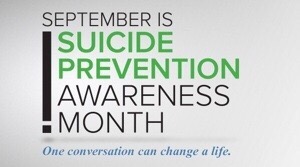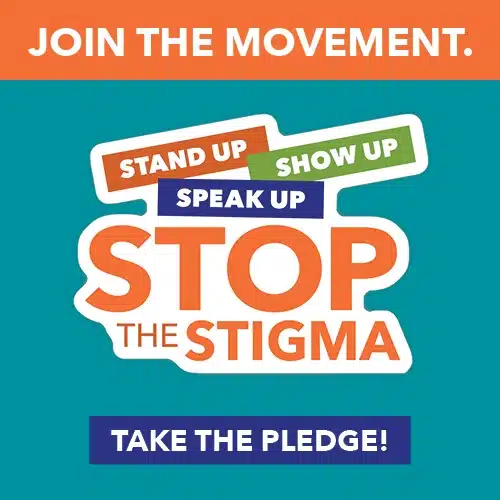September marks Suicide Prevention Awareness Month. The month gives us time to connect with those affected by suicide, reflect on how suicide has touched our own lives and to share resources to better support individuals, families and their communities in efforts to prevent suicide. According to the CDC, each year more than 41,000 individuals die by suicide, leaving behind thousands of friends and family members to navigate the tragedy of their loss.
Too often people considering suicide are afraid to ask for help, and those who think they see the signs of trouble are reluctant to be wrong and then offend, or cause embarrassment. NAMI reports that suicide is the 10th leading cause of death among adults in the U.S. and the 2nd leading cause of death among people aged 10-24 and shares warning signs to look out for:
- Threats or comments about killing themselves, also known as suicidal ideation, can begin with seemingly harmless thoughts like “I wish I wasn’t here” but can become more overt and dangerous
- Increased alcohol and drug use
- Aggressive behavior
- Social withdrawal from friends, family and the community
- Dramatic mood swings
- Talking, writing or thinking about death
- Impulsive or reckless behavior
It can be frightening and intimidating when a loved one reveals or shows signs of suicidal thoughts. However, not taking thoughts of suicide seriously can have a devastating outcome. If someone you know has shown any of these signs, don’t just watch from the sidelines or brush it off lightly. There are ways you can help prevent someone committing a suicide attempt:
- Do not leave the individual alone: Make sure they are with someone at all times.
- Remove dangerous objects: Get rid of any fire arms, sharp objects, drugs or anything that could be used in a suicide attempt.
- Tell someone and get help: There are many local resources available if someone you know is thinking about attempting suicide.
The National Suicide Prevention Lifeline at 800-273-8255
New Jersey Suicide Prevention Hopeline at 1-855-654-6735
If you or someone you know is in an emergency, call 911 immediately.
Suicidal thoughts or behaviors are both damaging and dangerous and are therefore considered a psychiatric emergency. Someone experiencing these thoughts should seek immediate assistance from a mental health care provider. Oaks Integrated Care can help. For resources or more information about our services visit www.oaksintcare.org or call our Access Center: 1-800-963-3377.










